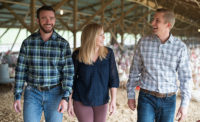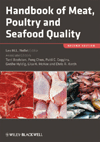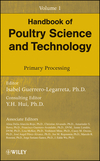(Editor’s Note: For more about Diestel Turkey Ranch, read the cover story about the company in the April issue of Independent Processor.)
Over the 70-plus years of its existence, Diestel Turkey Ranch has changed in many significant ways. The company’s products have expanded from a simple whole turkey to a range of products, including whole birds, turkey sausages and meatloaf. The birds are raised in a series of farms around its headquarters in Sonora, Calif. The company now has two processing plants in the area, as well as land that is devoted to a composting operation.
Through all the changes and evolutions, though, the company continues to operate on the same core values that helped launch the company in 1949: High-quality products, a commitment to animal welfare, and environmental sustainability have been and remain hallmarks of Diestel Turkey Ranch.
Jared Orrock, president of the company and part of the fourth generation of family ownership, says that one of the company’s core values is to be a steward of the environment and to reduce or minimize any negative impact to its farms, the local community or the water systems.
“The composting element is a huge part of our initiatives,” he says. “That takes all of the feathers out of the primary processing facility and a significant portion of the litter off the farms. We’re taking those products, combined with a substantial amount of green waste from the local community here – yard trimmings, brush, weeds – and over the course of 7 weeks produce a high-quality humus compost that’s hugely beneficial and is used in landscaping as well as agriculture here in northern California.”
The company’s interest in environmental sustainability is led by Jason Diestel, the vice president of operations and Orrock’s brother-in-law. He has gathered best practices from around the world and applied them to Diestel’s operations, and he’s developed methods to improve food safety and farm hygiene while reducing the company’s reliance on chemical usage.
The compost operation was developed originally as a way to remove feathers and litter from the farms and processing plants without paying someone to haul it to a landfill.
“It’s actually turned into its own standalone business that covers its operating costs,” Orrock says.
The seven-week process is carefully monitored and controlled. By the time the humus compost is ready to be bagged and sold, it is odorless and ready to be used as a soil amendment or a soil builder. It can improve the moisture retention capabilities of the soil and, if used for an agricultural purpose, can increase the fertility of the soil. The compost is sold in bulk to landscapers and is used in some prominent Bay Area locations.
“The Google and Apple campuses are landscaped with this product, [as well as] local wineries and other Central Valley producers,” Orrock says.
Technology where it counts
Diestel Turkey Ranch is at the cutting edge of the meat industry in many aspects. Along with the composting program, the company has been using probiotics on its farms and processing plants to reduce chemical usage. Order fulfillment involves the use of custom software that sorts the birds of different weights into the proper shipments. In other areas, the company is still quite traditional, and by design. When it comes to processing the whole turkeys, much of the work still is done by hand.
“The first objective in the plant is to produce a super-premium product, and the expectation is that everything that leaves our facilities is done at an artisanal quality, as if a professional butcher had done it himself. We do a lot of handwork; there’s very little automation. We just feel we can do a better job by hand,” Orrock explains.
Chilling the carcass involves another time-tested method, and Orrock believes that Diestel is the only turkey processor of any size that still utilizes small-batch ice chilling. The eviscerated carcasses are carried into a room filled with bins containing an ice water slurry. The carcasses are kept in ice until they have chilled to the proper temperature.
“This is the way turkeys were chilled in the ‘50s,” Orrock says. The company decided not to adopt the more modern practices of chilling the carcasses in chemically treated water. During that process, he says the carcass can take on as much as a pound or two of water weight.
“Nobody would take a perfect ribeye and pump it full of water,” Orrock says. “It would damage the texture of the meat and totally dilute the flavor of the meat.
“Our turkeys is more expensive, but it creates what we feel is a better value, providing premium quality and a better eating experience, because you haven’t diluted and flavor or compromised the texture by pumping a bunch of water in it,” he adds.








